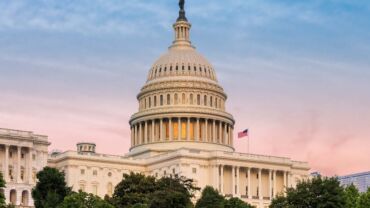Disaster Tax Relief and Airport and Airway Extension Act of 2017, Pub. L. No. 115-63 (Sept. 29, 2017); VI-2017-02 (Sept. 22, 2017); PR-2017-02 (Sept. 22, 2017); IR-2017-160 (Sept. 26, 2017); FL-2017-06 (Sept. 28, 2017); HHS Memorandum: 2017 Hurricane Disasters–Special Enrollment Periods (SEPs), Termination of Coverage, and Grace Period Flexibilities (Sept. 28, 2017); HHS News Release: CMS Announces Special Enrollment Periods for Americans Impacted by Recent Hurricanes (Sept. 28, 2017)
Disaster relief continues to be provided for the victims of Hurricanes Harvey, Irma, and Maria, including a variety of items impacting employee benefit plans. The Disaster Tax Relief and Airport and Airway Extension Act of 2017 (Legislation) was signed into law, including tax relief for certain distributions from retirement plans (including 401(k) plans) and increased limits for plan loans made to hurricane victims. And the IRS announced tax relief for victims of Hurricane Maria located in Puerto Rico and the U.S. Virgin Islands, as well as for victims of Hurricane Irma in the Seminole Tribe of Florida. HHS also announced federal Exchange special enrollment periods for individuals affected by the hurricanes. Here are highlights:
-
Legislation Offers Relief for Plan Distributions and Loans. The Legislation provides relief relating to retirement plan (including 401(k) plan) distributions and loans. Plans generally may be amended retroactively as late as the last day of the first plan year beginning on or after January 1, 2019, to incorporate these provisions, so long as the plans are operated as if the amendments were in effect from their effective date. [EBIA Comment: The retirement plan provisions in the Legislation are reminiscent of relief provided in the Katrina Emergency Tax Relief Act of 2005 (see our Checkpoint article).]
-
Distributions Not Subject to 10% Penalty. Qualified hurricane distributions taken by individuals whose principal residence is in a described hurricane area and who sustained an economic loss due to the hurricane will not be subject to the 10% penalty tax under Code § 72(t). These distributions are limited to $100,000 in the aggregate (regardless of whether received in one or more taxable years) and must be taken between the start date specified for each hurricane and January 1, 2019.
-
Income Tax Options for Qualified Hurricane Distributions. Participants receiving qualified hurricane distributions have two options. They can repay all or part of the distribution within three years by making contributions to a qualified retirement plan (which will be treated as timely rollover contributions, thus deferring taxation), or they can elect to spread the tax on the distribution over a three-year period.
-
Recontribution of Certain Prior Hardship Withdrawals. A special recontribution rule applies to hardship withdrawals taken within certain specified dates to build or buy a house in a hurricane area, if the withdrawals were not used to build or buy the house because of the hurricane. All or a part of the amount may be repaid or contributed to an eligible retirement plan on or before February 28, 2018, and treated as a timely rollover contribution.
-
Increased Limit for Plan Loans. Individuals whose principal residence is in a hurricane area and who suffered an economic loss due to the hurricane are eligible for an increased plan loan limit of $100,000 or 100% of their vested account balance for loans taken from September 29, 2017 through December 31, 2018. In addition, hurricane-affected individuals may delay the due date for certain outstanding plan loan payments by one year.
-
-
IRS Announces Maria Relief and Additional Irma Relief. IRS news releases offer relief to Maria victims in Puerto Ricoand the US Virgin Islands. And relief was granted to victims of Hurricane Irma who are in the Seminole Tribe in Florida. Although the news releases specifically focus on the relief previously granted to Harvey and Irma victims under Code § 7508A—including extended tax filing deadlines and other relief outlined in Revenue Procedure 2007-56—the IRS also issued a summary of tax relief following Harvey, Irma, and Maria suggesting that the broader relief granted to Harvey and Irma victims (including leave donation programs, and plan loan and hardship relief) also extends to the victims described in the Maria and Seminole news releases. [EBIA Comment: It is likely that formal announcements of additional IRS relief as well as DOL relief for retirement plans and group health plans will follow, presumably paralleling that previously offered (see our Checkpoint articles on Harvey and Irma). ]
-
HHS Special Enrollment Period Relief. HHS has announced an exceptional circumstances special enrollment period for 2017 federal Exchange coverage for individuals who had (or have) a qualifying event between 60 days prior to the FEMA-announced start of a hurricane event and December 31, 2017, but were (or are) unable to complete their 2017 special enrollment due to hurricane-related weather. In addition, individuals who reside in or move from hurricane-affected areas will have an exceptional circumstances special enrollment period that extends their open enrollment period for 2018 federal Exchange coverage through December 31, 2017.
EBIA Comment: Employee benefits-related relief is just a small part of the efforts being made to assist those who have been affected by these three recent hurricanes. While the situation is evolving, it is important to double-check the agency websites for the latest guidance before implementing programs to provide relief. For more information, see EBIA’s 401(k) Plans manual at Section XXXI.B.2.d (“Special Extensions Granted for Natural Disasters and Other Events”), EBIA’s ERISAmanual at Section XXII.F (“Form 5500 Mechanics: Who, What, When, and How”), and EBIA’s Health Care Reform manual at Section XXI (“Exchanges, Qualified Health Plans (QHPs), and CO-OPs”). See also EBIA’s Fringe Benefits manual at Section XXII.E (“Leave-Sharing and Other Donation Programs”), EBIA’s Cafeteria Plans manual at Section III.B (“The Constructive Receipt Doctrine and the Code § 125 Safe Harbor”), and EBIA’s COBRA manual at Section XIX.D (“Tolling the Election Period”).
Contributing Editors: EBIA Staff.






